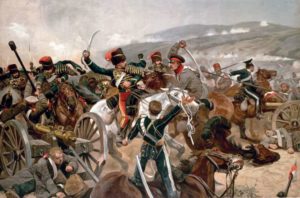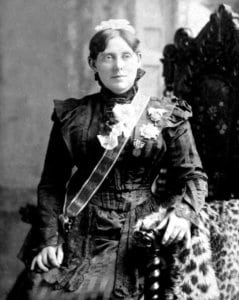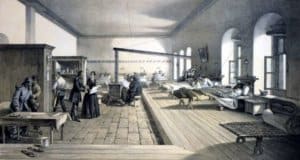How Did The Crimean War Change Life In Russia?
On 30th March 1856, the Crimean War was formally brought to an end with the signing of the Treaty of Paris.
This formal recognition signed at the Congress of Paris came subsequently Russia accustomed a humiliating defeat against the alliance of United kingdom, France, the Ottoman Empire and Sardinia. The treaty itself would accost Russian expansionism, quashing dreams of a Russian empire equal to none, whilst at the same time confirming the importance of the Ottoman Empire in maintaining a very tentative balance of power in Europe.
The Crimean War which had begun in October 1853 lasted eighteen months and in that time had escalated into a series of fragmented battles and sieges, causing huge loss of life and highlighting wider problems and failures pertaining to leadership, war machine intervention, bloodshed rates, medicine and mismanagement.

The war itself garnered a great deal of attention and proved to be a significant and defining moment for Europe. It was starting time and foremost the embodiment of a 'modern state of war', using new technologies that would later characterise the wars of the next century.
Furthermore, the coverage of the war in newspapers, particularly in Britain allowed the full general public to experience the horrors of state of war in a new and provocative way, cheers to reporting by the likes of William Howard Russell for The Times paper. This overseas reporting combined with information from pregnant figures such as Florence Nightingale, would paint an extremely unfavourable picture leading to demands for reforms.
 Florence Nightingale
Florence Nightingale
Whilst the Treaty of Paris marked an of import step, with all sides recognising the need for a peaceful solution, the logistics of competing interests in negotiations made it more than difficult to put into practice.
The main agreement did manage to create some tangible guidelines which included forcing Russian federation to demilitarise the Black Body of water. This understanding was between the Tsar and the Sultan who maintained that no armory could exist established on the coastline. For Russia this clause in item proved to be a major accident, weakening its ability base of operations as it no longer could threaten the Ottoman Empire via its navy. This was thus an of import step in scaling down the potential for escalating violence.
In addition, the treaty agreed the inclusion of the Ottoman Empire into the Concert of Europe which was substantially a representation of the rest of ability on the continent, instigated back in 1815 by the Congress of Vienna. As part of this, the European powers promised to comply with its independence and not compromise any Ottoman territory.
Russia on the other manus was forced to return the city of Kars and all other Ottoman territory which it had taken into its possession. The principalities of Wallachia and Moldovia were thus returned as Ottoman territory, later granted independence and eventually turned into mod-24-hour interval Romania.
Russia was forced by the treaty to abandon its claim of a protectorate for Christians living in the Ottoman Empire, thus discarding the very premise which engaged Russia in war in the first identify. In substitution, the brotherhood of powers agreed to restore the towns of Sevastpol, Balaklava, Kerch, Kinburn and many other areas back to Russian federation which had been occupied by the Centrolineal troops during the war.
A major consequence of this agreement was the reopening of the Black Sea for international trade and commerce. The importance of resuming trade was a major consideration for all involved, and so much so that an international commission was created on the premise of establishing a free and peaceful navigation of the Danube River for the purpose of commerce.
 'Le Congrès de Paris' by Edouard Louis Dubufe
'Le Congrès de Paris' by Edouard Louis Dubufe
Apart from resuming trade, the countries involved were forced into a period of reflection; with an unhappy general public, high expiry toll and little to prove for it, leaders needed to evidence they were willing to make changes. This was particularly pertinent for Russia which suffered terribly, losing around 500,000 of its troops. The Crimean War thus instigated an era of self-evaluation in Russia which threw off the shackles of archaic traditions and embraced modernisation.
Upon the death of Nicholas I, Alexander 2 became Tsar, who past comparison was liberal in his views and arroyo. A moving ridge of reforms followed with the momentous decision to abolish serfdom and address issues such as its failing economic system. Information technology was at this moment that Russia would embark into a new age where educated elites would pause in a moment of retrospection, unleashing equally they did and so an era of creativity characterised past the great figures of Tolstoy and Dostoevsky. Russian federation took its defeat as an opportunity to resolve internal problems.
Meanwhile, Crimea was significant for Britain as it marked i of its first military machine interventions in Europe for forty years. The repercussions for Westminster would be massive as the portrayal of the war in British media allowed the public for the first time to receive information solar day-past-24-hour interval about the carnage abroad. Information that many would accept wanted to keep tranquillity was available, the needless tragedy of the infamous Charge of the Light Brigade resonated strongly with a disaffected British population.
The Crimean War had ended favourably for Britain and members of its young man alliance, however its unpopularity had led to a change of leader with the Earl of Aberdeen being forced to resign via a no confidence vote in 1855. The new Prime number Minister, Lord Palmerston was the preferred choice. With the increased accessibility of information and more awareness of strange policy, the people would demand peaceful solutions.
As function of this new change under Palmerston's government, an inquiry was launched in order to investigate the disastrous set of events. The study concluded that the regime had been responsible for non allowing adequate supplies every bit well every bit blaming senior members of the Armed forces for sure delays.

The investigation also made important headway with the evolution of modern nursing practices, prompted by the work of Florence Nightingale and Mary Seacole who individually were improving the sanitation levels of field hospitals at Crimea. Lessons were at that place to exist learnt for all governments; people were dissatisfied with leadership and a new approach needed to be found.
The Treaty of Paris forced nations to address bug both internal and external. France and Great britain would remain committed to reinforcing and stabilising the Ottoman Empire as much as possible in lodge to restore residual. This would be difficult to reach, particularly with the ascent tide of nationalism in Ottoman territory which threatened the Empire'south very existence.
The inclusion of the Ottoman Empire into the sphere of European influence was seen equally essential for solving the "eastern question", however, the Treaty of Paris did picayune to accost this puzzler. The treaty simply affirmed Turkey's crucial role in European peace but was not able to prevent conflict from ensuing once more. The Ottoman Empire would eventually autumn in 1914.
More widely, the Crimean War saw the residue of power alter easily in Europe. Whilst Russian federation suffered a major defeat, Republic of austria, which had called to remain neutral, would find itself in the coming years at the mercy of a new rise star, Germany.
Under the leadership of Bismarck, who took reward of fraught relations, new strategy for survival emerged. Republic of austria would end upwardly uniting with Hungary in a monarchical empire. Meanwhile, Sardinia, a participant in the alliance at Crimea would intervene in Italian affairs, ensuring that a united nation of Italian republic would emerge out of the territorial chasms of Europe.
Traditional empires were now nether threat, with Britain and France sensing the urgency and need to maintain a grip on affairs. The Crimean War highlighted how hard it was to keep a balance of power in Europe. The finish of the war resulted in a new era of relations, a new fashion of doing things; the old traditional empires stretched over continents gave way in Europe to the nation-state. Change was coming.
Jessica Brain is a freelance writer specialising in history. Based in Kent and a lover of all things historical.
How Did The Crimean War Change Life In Russia?,
Source: https://www.historic-uk.com/HistoryUK/HistoryofBritain/Outcome-Crimean-War/
Posted by: blackburncounce.blogspot.com


0 Response to "How Did The Crimean War Change Life In Russia?"
Post a Comment